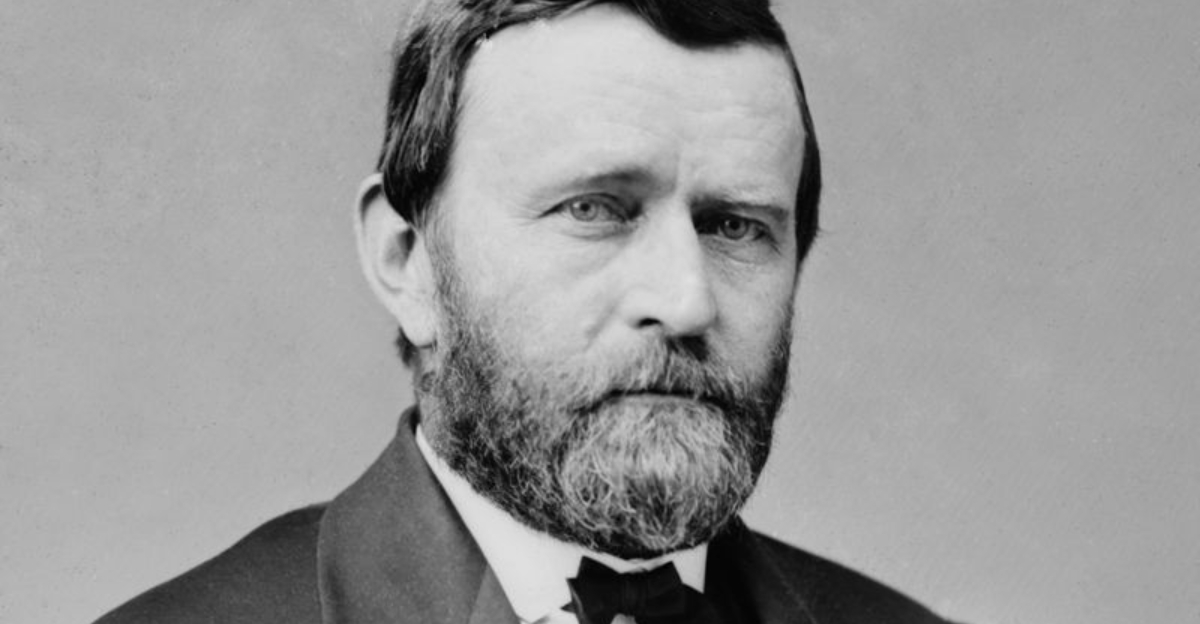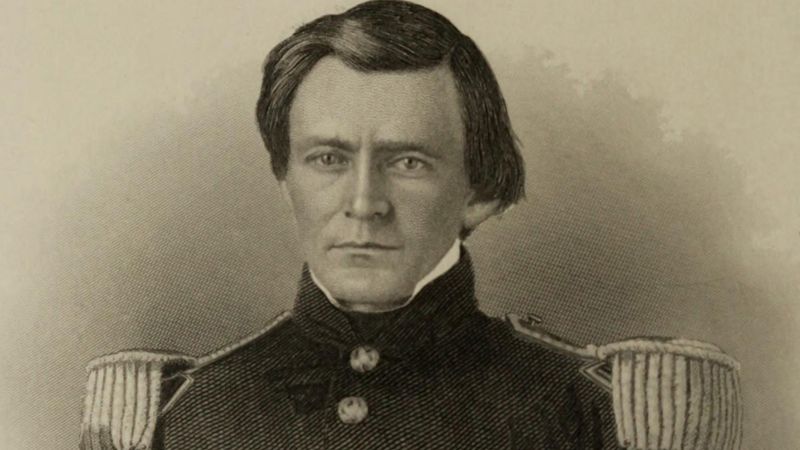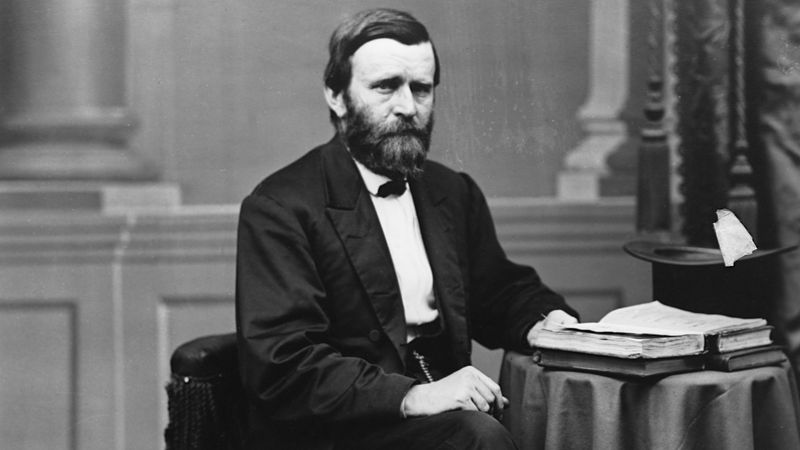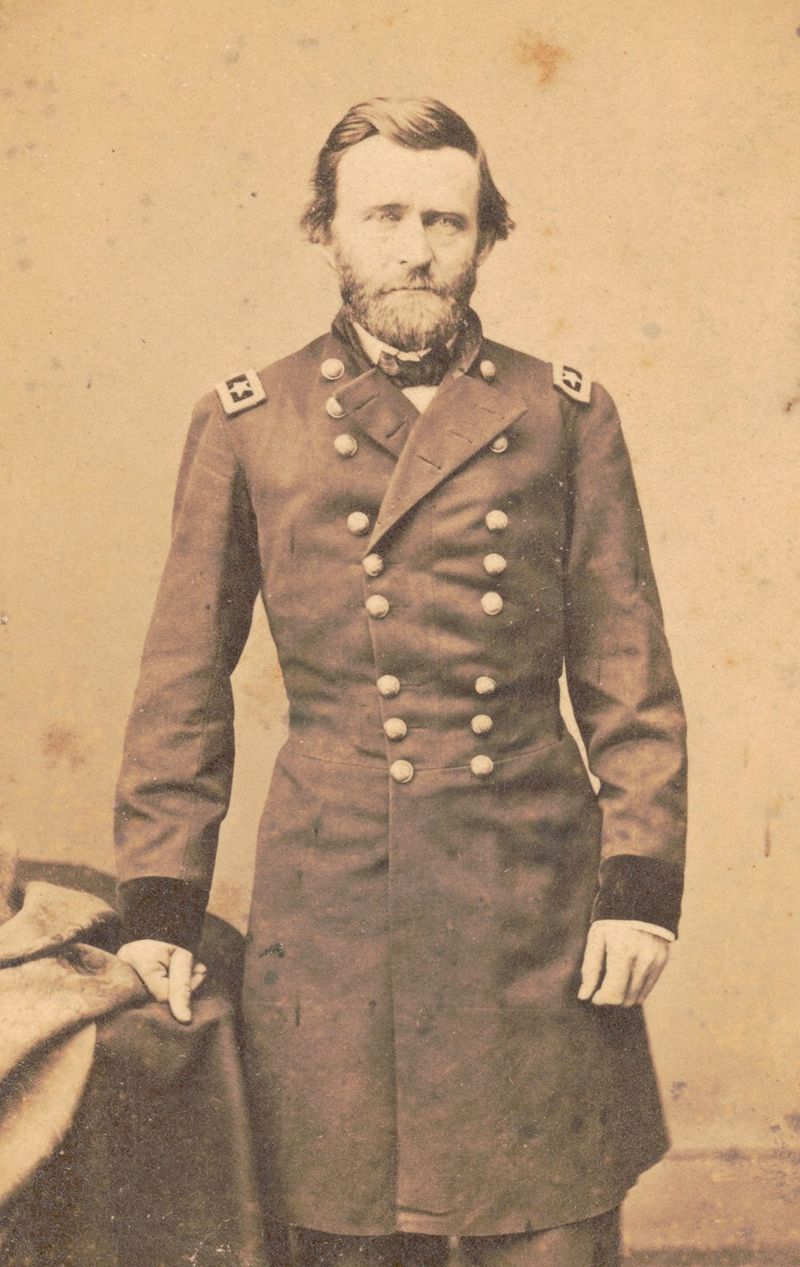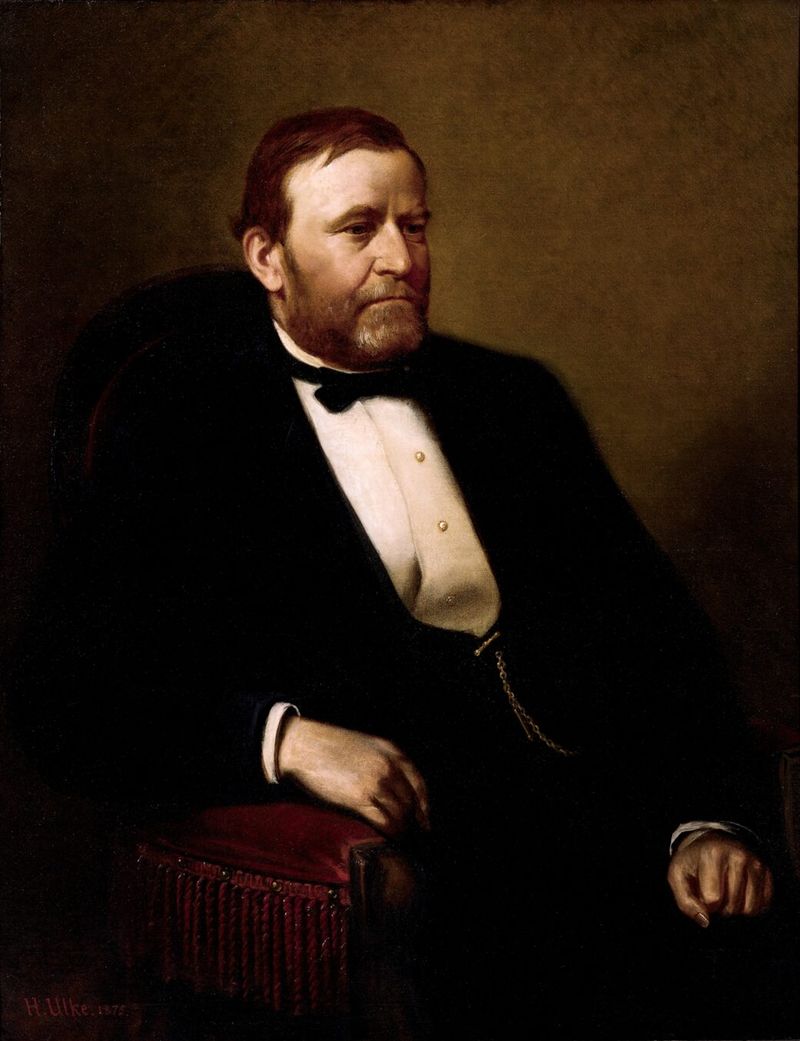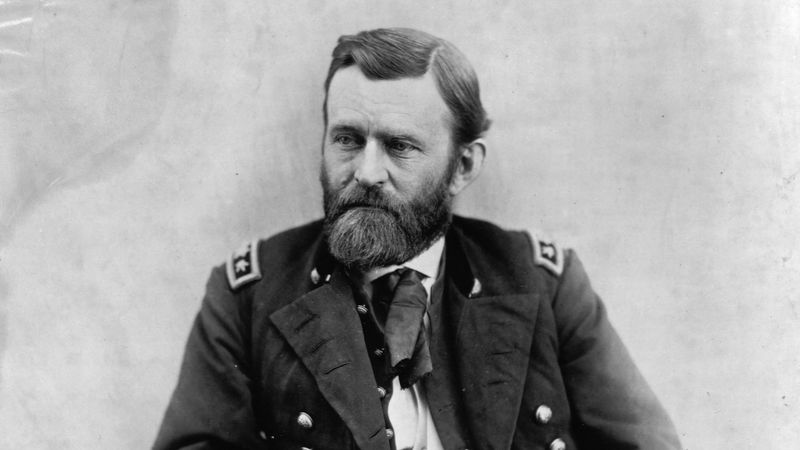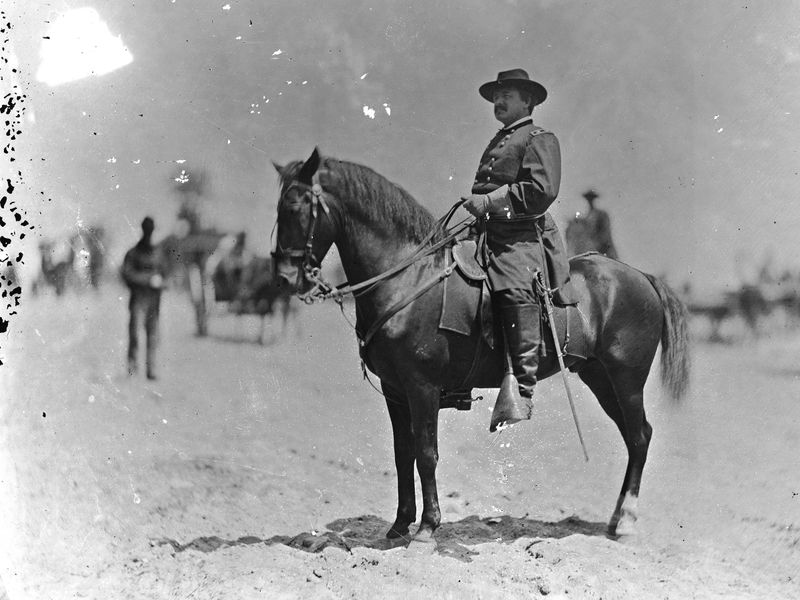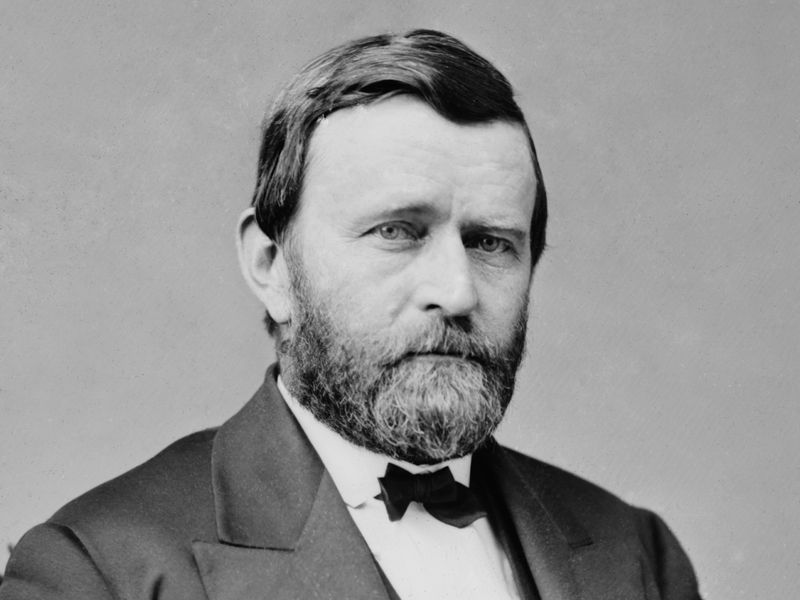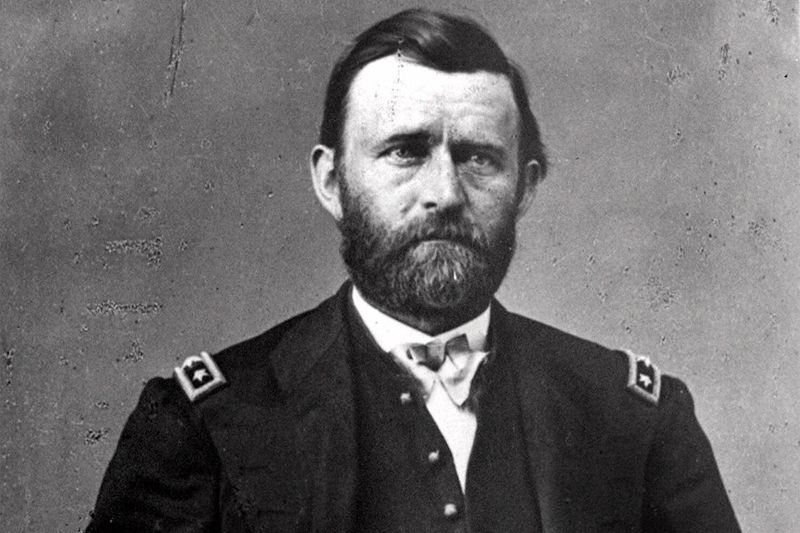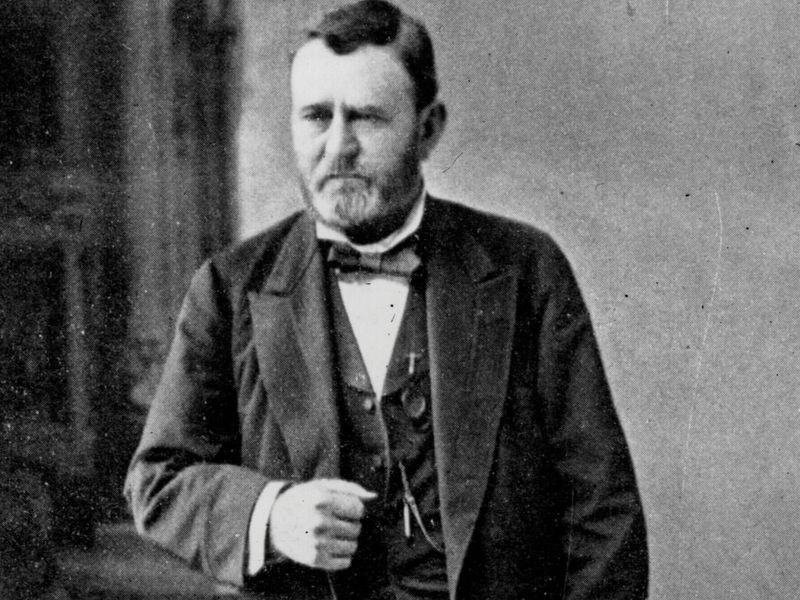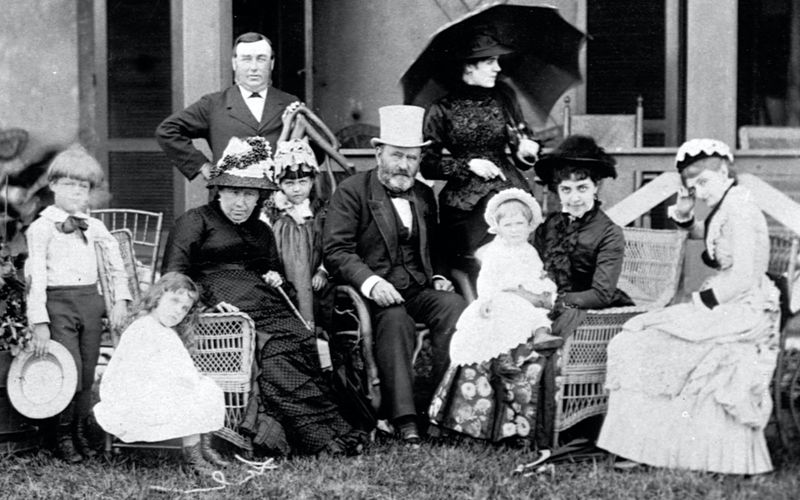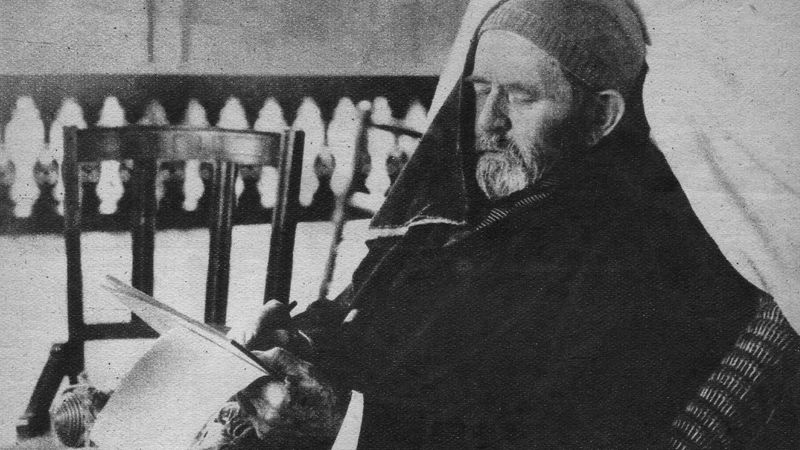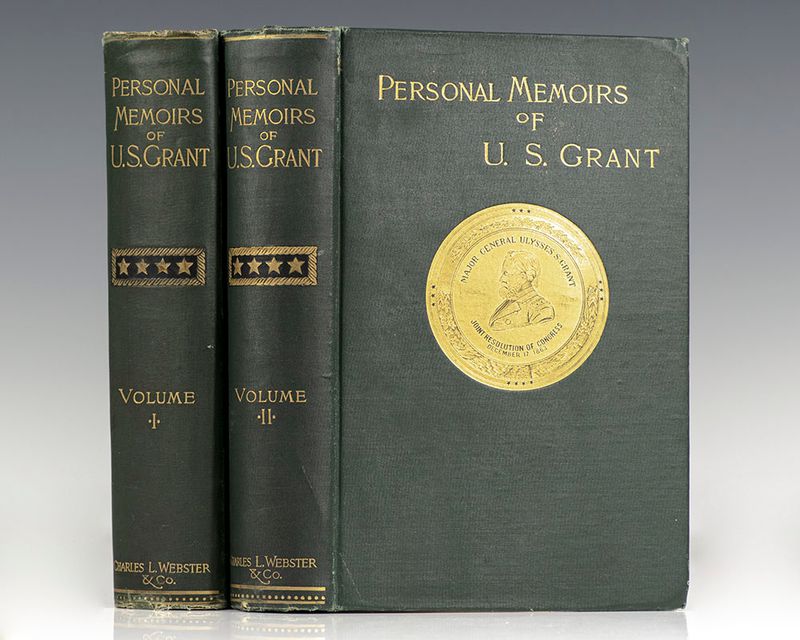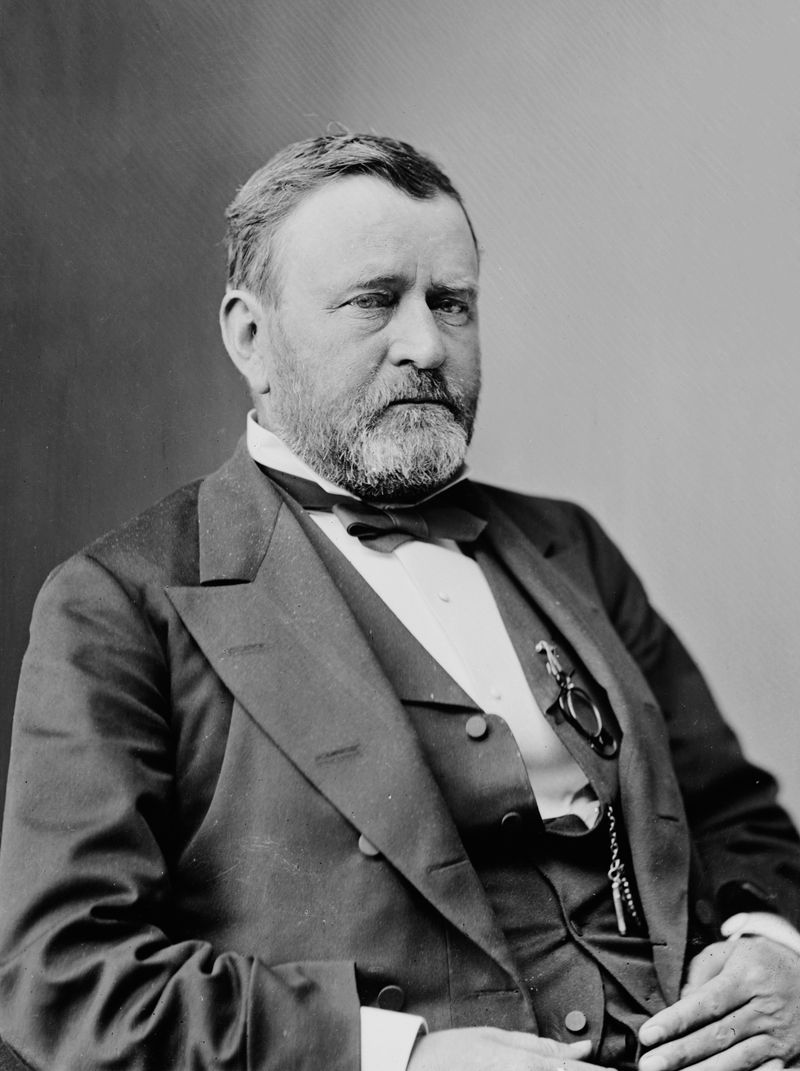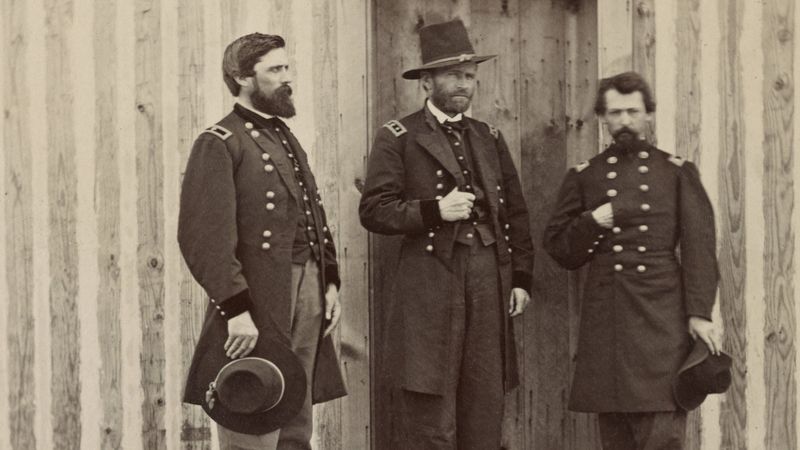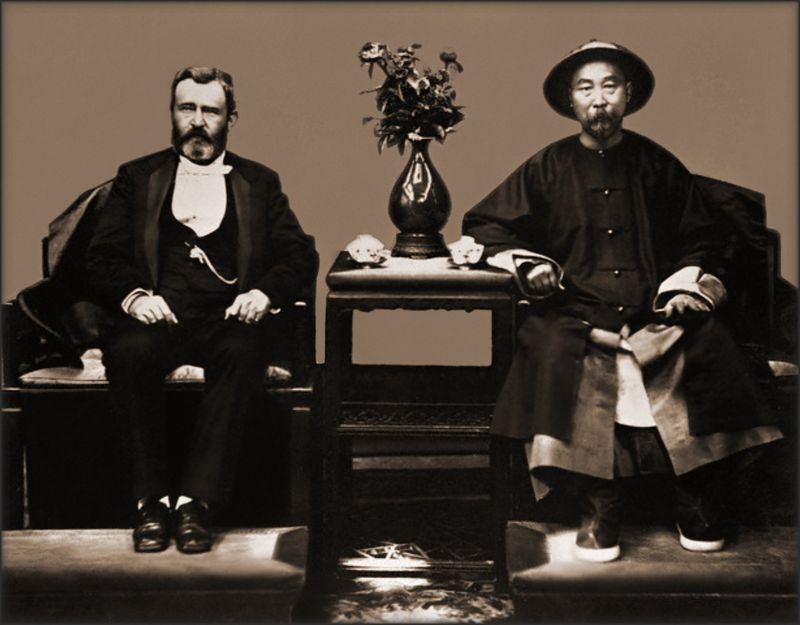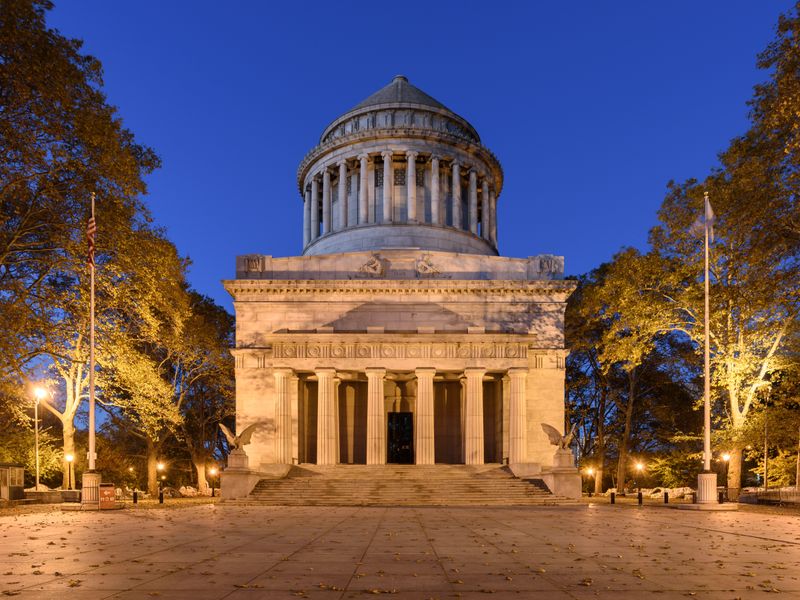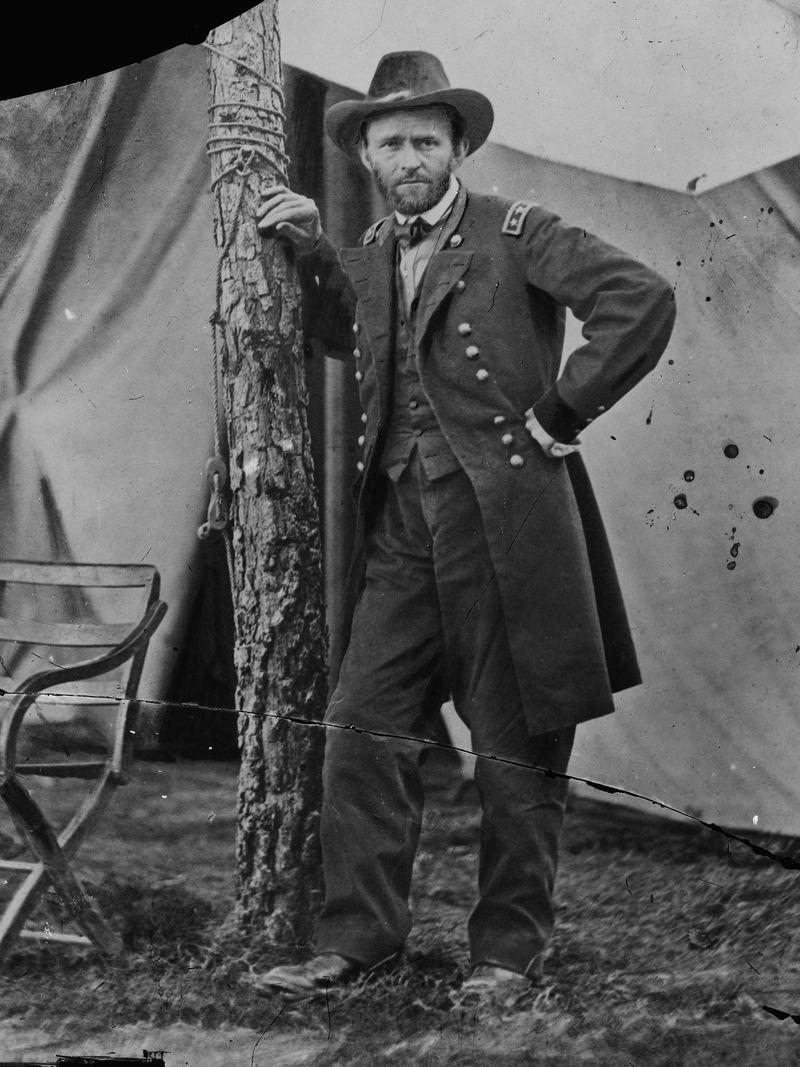Ulysses S. Grant, the 18th President of the United States and a prominent Civil War General, is often remembered for his military victories and presidency. However, there are many fascinating aspects of his life that remain lesser-known.
Join us as we explore 18 surprising facts about this remarkable figure, unveiling stories that didn’t make it into your history textbooks.
From his unique name to his unexpected personal challenges and achievements, these facts paint a richer picture of Grant’s life and legacy.
1. His Real Name Wasn’t Ulysses S. Grant
Hiram Ulysses Grant was born with a name destined for change. A clerical mistake at West Point enrolled him as “Ulysses S. Grant,” a name he adopted. Grant often quipped that the middle initial ‘S’ stood for nothing at all.
This accidental change marked the beginning of his iconic identity. Throughout his life, he embraced the moniker, believing it carried a sense of destiny.
Grant’s name, while a product of error, became synonymous with his legacy. This unexpected twist reflects the unpredictability of life, shaping his path in unforeseen ways.
2. He Was Horrible at Business
Grant’s ventures into business were fraught with challenges. Despite his determination, he failed at farming, real estate, and selling firewood. By the time the Civil War loomed, he was working in his father’s leather goods store.
His struggles in business contrast sharply with his military success. However, these experiences taught him resilience and humility. The persistence he developed during these ventures served him well on the battlefield.
While business was not his forte, Grant’s failures contributed to the depth of his character. These trials were stepping stones to his later accomplishments.
3. He Was Almost Court-Martialed for Drunkenness
Alcohol was both a companion and adversary for Grant. His solitary postings at frontier forts exacerbated his drinking, nearly leading to a court-martial. In 1854, he resigned from the army, a decision influenced by his struggles with alcohol.
This period of his life was marked by personal battles, shaping the man who would later lead armies. His fight with alcohol was a testament to his human vulnerabilities.
Despite this, Grant’s ability to rise above these challenges demonstrated his resilience. His journey through adversity forged a leader of remarkable tenacity.
4. He Hated the Sight of Blood
Despite his prowess as a military leader, Grant had a visceral aversion to blood. This dislike influenced his personal choices, steering him away from hunting, a popular pastime of his era.
His sensitivity to blood contrasts with his battlefield image, where he commanded troops with unwavering resolve. Grant’s aversion reveals a more compassionate side, underscoring his complexity as a leader.
This sensitivity didn’t hinder his strategic mind but rather highlighted his depth. Grant’s unexpected phobia adds a humanizing layer to our understanding of him, juxtaposing his public persona with personal preferences.
5. He Was Nearly Killed Just Before Becoming President
Grant narrowly avoided a tragic fate the night Abraham Lincoln was assassinated. Invited to Ford’s Theatre, he and his wife declined, choosing instead to visit their children.
This decision possibly saved their lives, as the President was tragically shot that evening. The Grants’ decision highlights the role of chance in history. It underscores the unpredictability of life and how small choices can have monumental impacts.
This near-miss with history left an indelible mark on Grant, shaping his presidency with a deeper appreciation for life’s fragility. Such moments define the course of personal and national history.
6. He Loved Fast Horses
Grant’s love for horses was well-known, with many considering him one of the finest equestrians in the army. From a young age, he demonstrated exceptional riding skills, often choosing the fastest horses.
This passion continued throughout his life, showcasing a rare talent outside of his military endeavors. His affinity for horses provided a respite from the stresses of his military and political duties.
This connection underscored his appreciation for grace and power, qualities he admired in horses. Grant’s equestrian passion reflects his multifaceted personality, blending strength with a softer side.
7. He Got the First Speeding Ticket in D.C.
During his presidency, Grant became the first person to receive a speeding ticket in Washington D.C. While driving his horse-drawn carriage, he was stopped by an officer unaware of his identity.
This amusing incident highlights Grant’s continued love for speed, albeit with horses. It also humanizes him, showcasing a playful side not often associated with a president. This event captures a moment of levity in the often-serious realm of politics.
Grant’s ticket is a reminder of his individuality and the small, relatable experiences that even historical figures encounter. Such anecdotes add color to his storied life.
8. He Was an Early Advocate for Civil Rights
Grant’s presidency marked significant strides in civil rights, particularly during Reconstruction. He strongly advocated for the 15th Amendment, ensuring voting rights for Black men.
His commitment to equality was evident in his policies, which sought to dismantle racial barriers. Grant’s efforts laid foundational stones for civil rights, showcasing his progressive vision. His presidency aimed to unite a fractured nation, emphasizing justice and equality for all citizens.
These actions reflect his dedication to American ideals, positioning him as a pivotal figure in civil rights history. Grant’s legacy in this realm continues to resonate in modern discourse.
9. He Cracked Down on the KKK
Under Grant’s leadership, the federal government took unprecedented steps to curb the Ku Klux Klan’s influence in the South. Utilizing federal troops and the Justice Department, his administration sought to dismantle the Klan’s terror.
This decisive action was rare at the time, reflecting Grant’s commitment to civil rights and justice. His efforts underscored the importance of federal intervention in protecting citizens’ rights.
By curbing the Klan, Grant helped reinforce the rule of law, promoting stability in post-war America. His presidency demonstrated the power of leadership in combating domestic terrorism and fostering national unity.
10. He Traveled the World Like a Rockstar
After leaving the White House, Grant embarked on a world tour that garnered him acclaim across the globe. For two years, he traveled extensively, receiving honors from royalty and leaders in Europe, Asia, and the Middle East.
This journey allowed him to experience diverse cultures and form international alliances. Grant’s tour was more than a personal adventure; it was a diplomatic mission that enhanced America’s global standing.
His warm receptions reflected his stature as a respected leader worldwide. Grant’s travels highlighted the interconnectedness of nations and the enduring influence of diplomacy.
11. He Was Swindled Into Poverty
In his later years, Grant’s financial security was shattered by a Ponzi scheme orchestrated by his son’s business partner. This fraudulent venture wiped out his savings, leaving his family in financial distress.
The betrayal was a harsh blow, underscoring the vulnerability of even the most esteemed figures. Despite his military and political successes, Grant faced personal trials that tested his resilience.
This experience highlighted the precarious nature of financial security. Grant’s financial downfall serves as a cautionary tale, reminding us of the importance of vigilance and trust in safeguarding one’s legacy.
12. He Wrote a Best-Selling Memoir While Dying
Facing terminal throat cancer, Grant undertook the task of writing his memoirs to provide for his family. Racing against time, he completed the manuscript shortly before his death.
The memoirs became a bestseller, praised for their clarity and insight. This remarkable literary achievement was driven by necessity and love for his family. Grant’s writing offered a candid perspective on his life and the Civil War, enriching historical scholarship.
His determination to complete the memoirs highlighted his enduring spirit. This final contribution cemented his legacy as both a leader and a literary figure.
13. He Was the Youngest President Elected at That Time
When Grant assumed the presidency in 1869, he was just 46, making him the youngest president to that point. His youth brought a fresh perspective to the office, coupled with the vigor to tackle post-war challenges.
This milestone underscored a generational shift in American leadership. Grant’s presidency was marked by both innovation and controversy, reflecting the complexities of his era. His age symbolized a bridge between wartime leadership and peacetime governance.
Grant’s election highlighted the evolving nature of American politics, as the nation sought new directions under younger stewardship. His tenure set precedents for future administrations.
14. He Didn’t Actually Want to Be President
Despite his eventual presidency, Grant was initially reluctant to enter politics. He felt more at ease as a soldier, once stating his lack of ambition for the presidency. This hesitation reflected his preference for military service over political life.
Nonetheless, he heeded the call of duty, stepping into the role during a pivotal period. Grant’s reluctance adds depth to his character, showcasing his humility and sense of responsibility.
His presidency was a testament to his commitment to national service. Despite personal doubts, Grant’s leadership shaped a transformative era in American history.
15. He Was a Terrible Speller
Despite his many talents, Grant was notorious for his poor spelling. His original Civil War orders often required revisions before issuing. This quirk didn’t diminish his strategic brilliance but added a touch of imperfection to his persona.
Grant’s spelling struggles humanized him, revealing that even great leaders have their flaws. This aspect of his character served as a reminder that imperfection doesn’t preclude success.
His ability to lead and innovate overshadowed his spelling deficiencies, highlighting the importance of substance over form. Grant’s achievements were a testament to the power of perseverance and intellect.
16. He Was the First President to Host a Sitting Emperor
Grant’s presidency was marked by diplomatic milestones, including hosting Emperor Pedro II of Brazil. This visit was significant as it was the first time a reigning monarch visited the White House.
The meeting underscored the importance of international diplomacy in Grant’s administration. It reflected his openness to global engagement and cultural exchange. Grant’s hospitality paved the way for future diplomatic relations, fostering goodwill between nations.
This historic visit highlighted the evolving role of the presidency in global affairs. By welcoming foreign leaders, Grant helped shape the foundations of modern international diplomacy.
17. His Tomb Is the Largest in North America
Grant’s final resting place is marked by grandeur. Located in New York City, Grant’s Tomb is the largest mausoleum in North America, reflecting the nation’s respect for him.
The tomb symbolizes the admiration Grant commanded, despite his presidency’s controversies. It stands as a testament to his military achievements and contributions to the nation’s healing post-Civil War.
The mausoleum’s size and prominence underscore the lasting impact of his leadership. Grant’s Tomb remains a place of reflection and remembrance, honoring his legacy. This monument encapsulates the enduring respect and gratitude for his service to the country.
18. He Died a National Hero
Despite controversies during his presidency, Grant’s death was met with national mourning. Over 1.5 million people attended his funeral, one of the largest public events in American history.
This immense turnout reflected the deep respect and admiration he garnered from the public. Grant’s legacy as a national hero was solidified by this outpouring of sentiment. His life and accomplishments left an indelible mark on the nation.
The grand scale of his funeral underscored the collective gratitude for his leadership. Grant’s passing was a moment of national reflection, honoring a figure who shaped American history.
